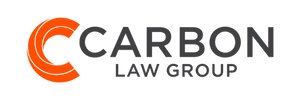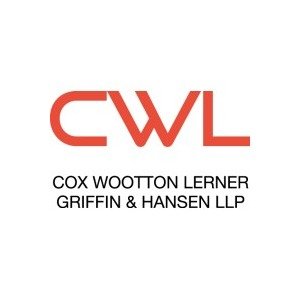Best Trademark Lawyers in Los Angeles
Share your needs with us, get contacted by law firms.
Free. Takes 2 min.
List of the best lawyers in Los Angeles, United States
About Trademark Law in Los Angeles, United States:
Trademark law in Los Angeles, United States is governed by a combination of federal and state statutes. A trademark is a unique symbol, word, phrase, design, or logo that distinguishes the goods or services of one business from those of others. Registering a trademark provides legal protection and exclusive rights to the owner, preventing others from using similar marks in commerce.
Why You May Need a Lawyer:
Seeking legal assistance for trademark matters is crucial in various situations, such as:
- Filing a trademark application: A lawyer can guide you through the complex application process to ensure your application is complete and meets all requirements.
- Trademark infringement: If someone is using a mark that is similar to yours, a lawyer can help you enforce your rights and protect your trademark.
- Trademark litigation: In cases of disputes or lawsuits related to trademarks, having a lawyer with expertise in trademark law can provide effective representation.
- Trademark search: Conducting a comprehensive search to identify existing trademarks and evaluate potential conflicts requires legal knowledge.
- Trademark licensing: If you wish to license your trademark to others or acquire a license to use someone else's trademark, a lawyer can assist in negotiating and drafting the licensing agreements.
Local Laws Overview:
In Los Angeles, United States, trademark law primarily revolves around the Lanham Act, which is the federal law governing trademarks, trade names, and unfair competition. The U.S. Patent and Trademark Office (USPTO) handles trademark registration and provides guidelines that must be followed. Additionally, California state laws supplement federal statutes, offering additional protective measures and remedies for trademark owners.
Frequently Asked Questions:
1. What is the difference between a trademark and a copyright?
A trademark is used to protect brands, logos, and names associated with goods or services, while a copyright protects original works of authorship such as literary, artistic, and musical creations.
2. How long does trademark registration last?
Once registered, a trademark can last indefinitely as long as you continue to use it in commerce and follow necessary renewal procedures.
3. Can I trademark a slogan or phrase?
Yes, as long as the slogan or phrase distinguishes your goods or services and is not merely descriptive or generic.
4. Is it necessary to register a trademark, or do I have rights even without registration?
Trademark rights exist upon the first use of the mark, but registration provides additional benefits and legal protections, including nationwide recognition and the ability to bring federal lawsuits.
5. What can I do if someone infringes my trademark?
If you suspect trademark infringement, consult with a lawyer. They can advise you on sending cease and desist letters, initiating a lawsuit, or pursuing alternative dispute resolution methods.
Additional Resources:
If you need legal advice or further information about trademarks, consider consulting the following resources:
- United States Patent and Trademark Office (USPTO) - www.uspto.gov
- State Bar of California - Intellectual Property Law Section - www.calbar.ca.gov
- Los Angeles County Bar Association - Intellectual Property Law Section - www.lacba.org
Next Steps:
If you require legal assistance regarding trademarks in Los Angeles, United States, it is recommended to find an experienced trademark attorney. Start by researching local law firms or seeking referrals from trusted sources. Schedule a consultation to discuss your specific needs and evaluate the best course of action.
Lawzana helps you find the best lawyers and law firms in Los Angeles through a curated and pre-screened list of qualified legal professionals. Our platform offers rankings and detailed profiles of attorneys and law firms, allowing you to compare based on practice areas, including Trademark, experience, and client feedback.
Each profile includes a description of the firm's areas of practice, client reviews, team members and partners, year of establishment, spoken languages, office locations, contact information, social media presence, and any published articles or resources. Most firms on our platform speak English and are experienced in both local and international legal matters.
Get a quote from top-rated law firms in Los Angeles, United States — quickly, securely, and without unnecessary hassle.
Disclaimer:
The information provided on this page is for general informational purposes only and does not constitute legal advice. While we strive to ensure the accuracy and relevance of the content, legal information may change over time, and interpretations of the law can vary. You should always consult with a qualified legal professional for advice specific to your situation.
We disclaim all liability for actions taken or not taken based on the content of this page. If you believe any information is incorrect or outdated, please contact us, and we will review and update it where appropriate.

















